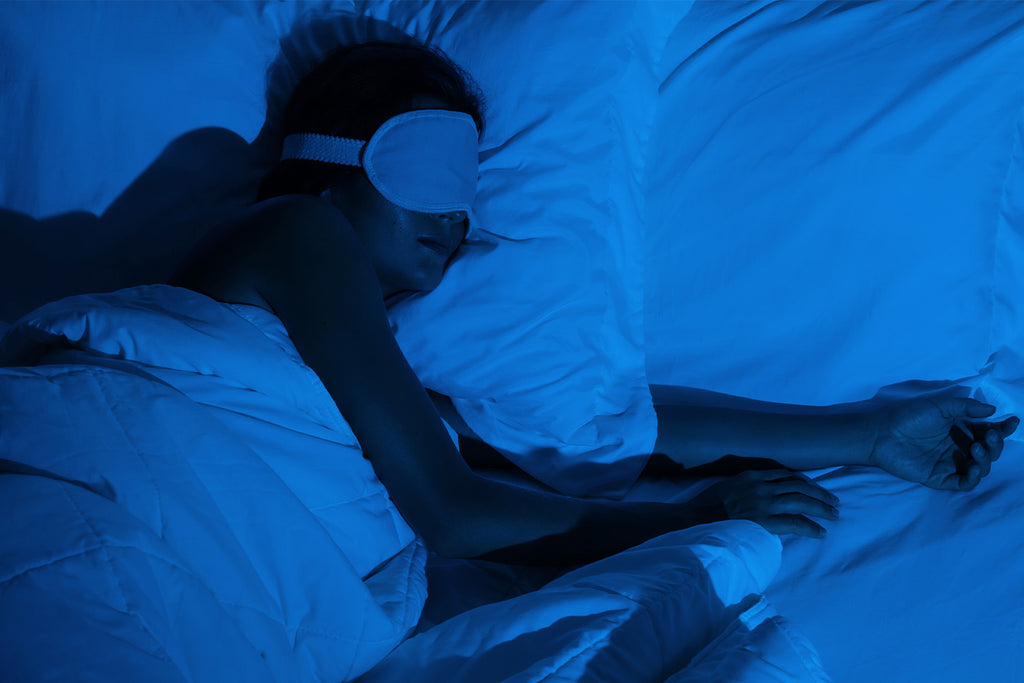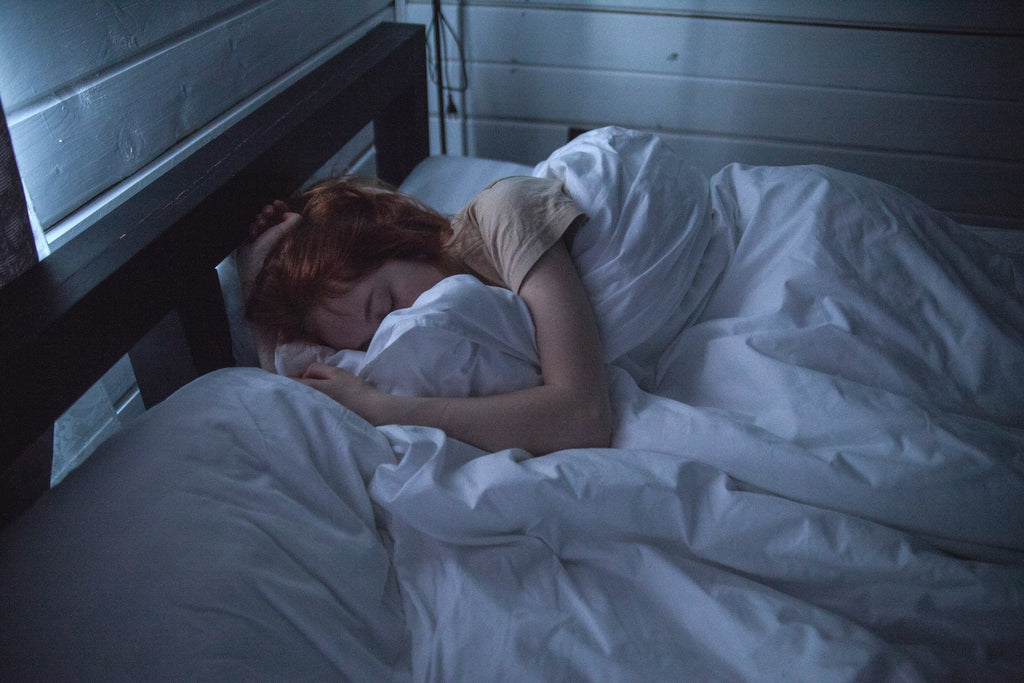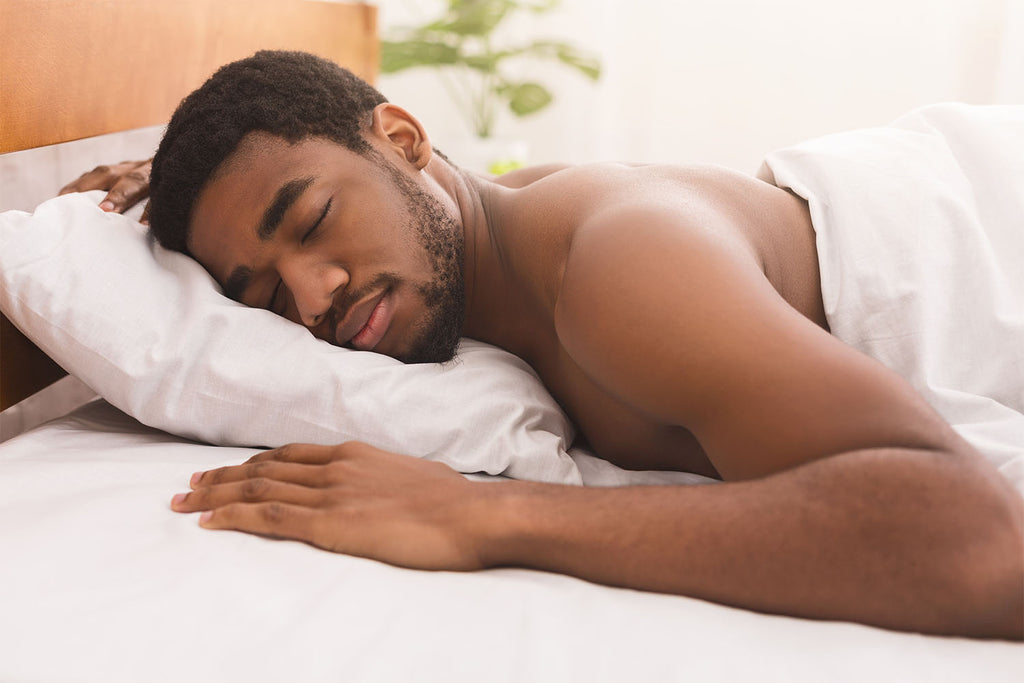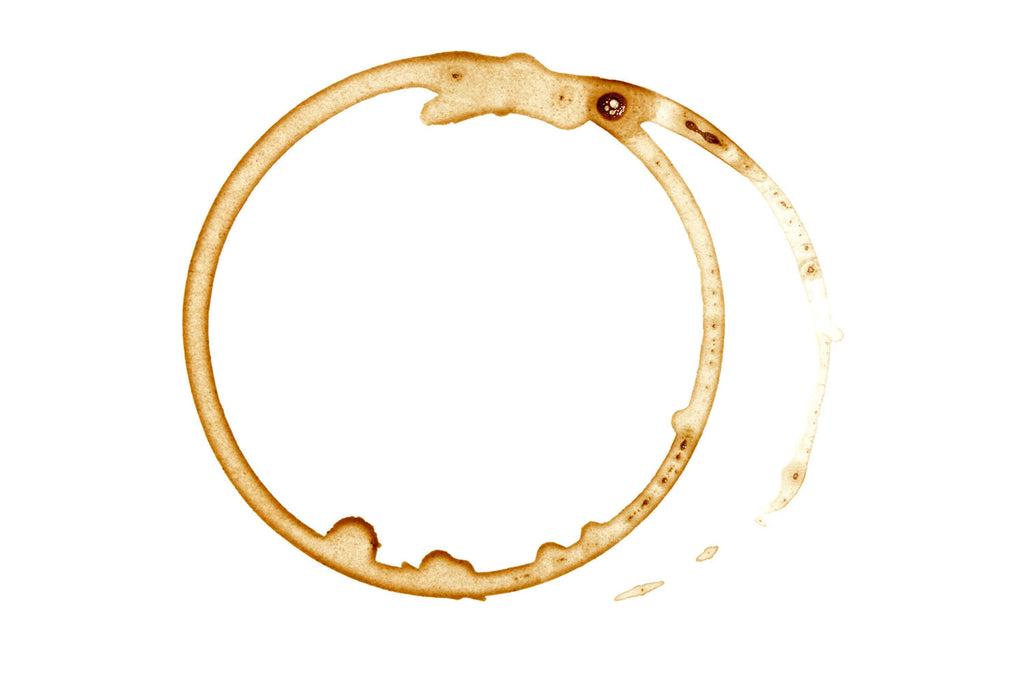
How Much Deep Sleep Do You Need?

Deep sleep is something that we all need in order to look and feel our best for the next day ahead of us. Do you really know what deep sleep is, though, and how much you should be getting?
“Deep sleep” is a term that is often used in conversations surrounding health and wellness, but in order to understand how much deep sleep you should get, you have to understand the other stages of sleep as well.
There are various factors, such as your general sleeping patterns, lifestyle choices, and other aspects, that could impact your ability to get into the stage of deep sleep and how long you should/are able to remain in this stage.
All About Sleep Stages: What Are They?
Understanding sleep and how it plays a role in the hours of shut-eye you’re getting at night starts with knowing how it factors into all of the other sleep stages that you experience throughout the night. Here is a brief breakdown of these different kinds of stages experienced by sleepers.
Stage 1: Drowsiness
This is typically the stage of sleep where you initially begin to feel tired, and your eyelids start to feel heavier. It’s the bridge from being awake to the beginning of your rest. You can expect slowed breathing and a slower heartbeat as your body prepares you for sleep.
Stage 2: Light Sleep
Once you’ve entered this stage, your breathing and heart rate will begin to slow even more than the rate it was at in Stage 1. As a result, your body temperature drops, and your muscles will loosen up.
Out of all the sleep stages, this is the one that people typically tend to spend the most time in collectively. You cycle in and out of all these stages of sleep multiple times throughout the night, this stage accounting for almost half your total sleep throughout the night.
Stage 3: NREM Sleep (Less Deep Sleep)
The non-REM stage is the portion of your sleep that people refer to as deep sleep. Often referred to as “slow-wave sleep,” this is the stage when brain waves are at their lowest frequency. The non-rapid eye movement stage is the stage of sleep where the body is about to enter REM.
Deep, non-REM sleep is usually when sleepwalking occurs, according to sleep studies.
REM Stage: Deep Sleep Stage
REM stands for rapid eye movement. This is a stage where your brain activity is actually slightly heightened. If anything, it’s more similar to the type of activity that your brain is used to when you are awake.
Even though your brain is more active throughout this stage, you're still in a state of sleep. This stage is where most people’s vivid dreams typically occur.
The Importance of Deep Sleep
Let’s get one thing strange: each stage of sleep is incredibly important. This is why it is essential to get the rest that your brain and body deserve since each stage of sleep plays its own specific role. With that being said, deep sleep can offer a wide variety of specific benefits, as your healthcare provider probably often tells you.
For one, when you are in a state of deep sleep, your body helps to build and maintain muscle and bone strength and helps to improve your body’s immune system and its ability to function. This is why people often say one of the best things for you when you are feeling sick is sleep because your body is releasing a growth hormone meant to help you avoid health problems.
Higher sleep quality and longer total sleep time are also good for a boost in your metabolism. Deep sleep helps to replenish all of that energy that you used earlier in the day.
In addition to the physical health benefits that deep sleep offers, there is also a sizable amount of research on deep sleep and its power to enhance various cognitive functions. For instance, deep sleep can help to sharpen your memory, help in language learning, and the overall development of the brain.
Deep sleep allows your brain to archive memories you have gathered throughout the day and prepares you for the upcoming morning, making sure all the important pieces of information are stored away in your brain.
What Is the Right Amount of Deep Sleep?
Most sleep health professionals agree that the average adult should get a minimum of seven hours of sleep a night, with a maximum of nine hours. Note that this is a range (everyone’s ideal amount of sleep varies based on several factors), including age and other health conditions.
We want to avoid sleep deprivation and disrupting our natural sleep cycle. Since deep sleep only accounts for a smaller fraction of this range of time, it is estimated that 13% to 23% of shut-eye should be deep sleep. This roughly comes out to about 60 to 90 minutes of deep sleep.
You can’t necessarily jump straight into a deep sleep or control how much you get. Generally, the best way to meet this standard is by aiming for that seven to nine hours of overall sleep.
This way, you’ll wake up knowing that you experienced one of the most critical and beneficial stages of sleep, with the rest made up of the different stages in your circadian rhythm.
Signs You’re Lacking Deep Sleep
There are a couple of typical signs/signals that act as indicators of needing more deep sleep.
Here are some of the main ones to look out for:
- Feeling Very Drowsy: Do you find that you are feeling more and more tired and groggy? Perhaps it’s a feeling of brain fog or just not feeling refreshed? A lack of deep sleep could be the culprit.
- Lack of Alertness: Maybe you’re finding it hard to focus, and your attention span is not as long as it once was. If this is the case, getting a good night’s rest each night could help to alleviate this issue.
- Trouble With Learning/Memory: Another sign that you are not getting enough deep sleep could be a decrease in information retention or having overall difficulty retaining or understanding information.
- Appetite for High-Calorie Foods: High-calorie foods could help you feel like you have more energy, the energy you otherwise would have been getting from the time spent in deep sleep. This could be a harder one to pinpoint, but it’s something to look out for.
How To Increase Your Hours of Deep Sleep
Certain habits in a daily routine could help you get more deep sleep. Putting these habits into practice will make it much easier to log enough deep sleep during the seven to nine hours of a good night’s sleep.
Exercise
Exercising at some point throughout the day will facilitate an easy transition into sleep at night. Getting your body up and moving helps to tire yourself out. If you’re struggling to nod off, add exercise into your routine to get better sleep — and faster.
Avoid Caffeine Past 3 PM
We’re not asking you to skip out on your morning cup of coffee, but caffeine is known to make you particularly jittery and keep you up at night. If you can, try to avoid consuming any product that has excessive amounts of caffeine past 3 PM. This will prevent any issues you might be facing with getting to sleep and preserve your sleep schedule.
Create an Ideal Sleep Environment
When trying to get some sleep, make your environment as comfortable as it can possibly be. For instance, make sure that your bedroom is cool and dark and that minimal distractions like loud noise don’t interrupt your sleep.
Have a Daily Night Routine
Consistent nightly routines can improve sleep quality. This could be reading ten pages of a book before bed, doing some relaxing skincare, or whatever will help you to wind down at night. Now, you can jump into your oh-so-comfy mattress and nod off seamlessly.
Take a Warm Shower/Bath
Taking a warm bath at night (complete with fluffy towels), particularly close enough before you begin to wind down, can help you to get the sleep that you need. Take a warm shower roughly an hour before you head to bed. Doing so has proven to help bring on deep sleep more easily.
Make Dietary Changes
If you find that some of these tips are not working for you and you’re still struggling with getting deep sleep, some changes to the diet may help. Saturated fats have been shown to negatively affect one’s ability to get into a deep sleep, whereas foods high in fiber have the opposite effect.
Reminders for Deep Sleep
Deep sleep is one of the most important stages of sleep to experience. It helps to give you energy for the next day, rebuilds muscles, regulates hormones, and just overall helps to make your upcoming day as easy as possible.
Signs you're lacking deep sleep are an overall drowsy quality and lack of alertness. Try engaging in activities like exercise and avoiding caffeine if you think you are not getting enough deep sleep. When you need to make your bedroom totally dream-worthy, check out eLuxury.
Sources:
What Is Deep Sleep? | Verywell Mind
Deep Sleep: How Much Do You Need? | Sleep Foundation
How Much Deep, Light, and REM Sleep Do You Need? | Healthline
How many hours of sleep are enough? | Mayo Clinic




